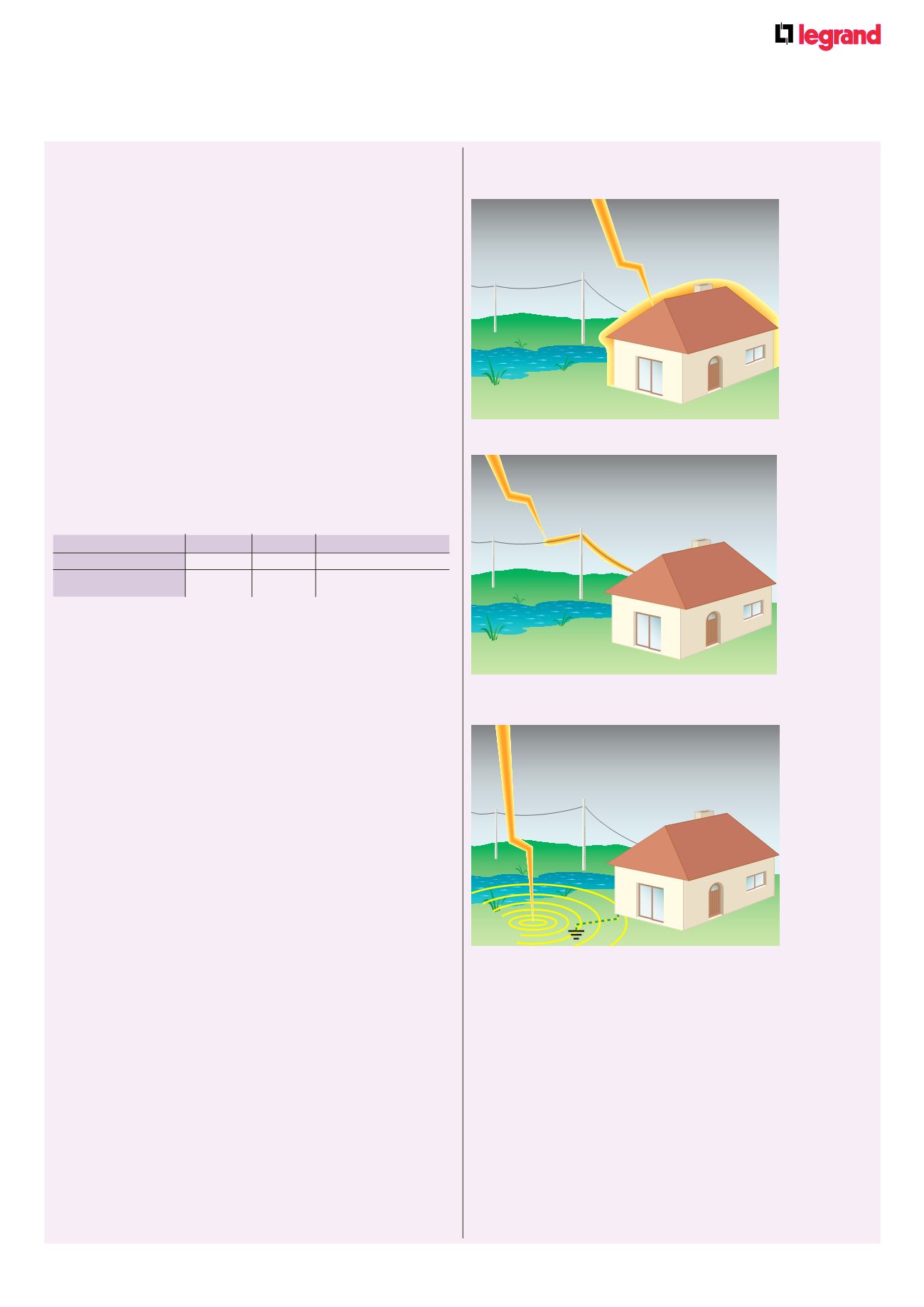

221
voltage
surge protectors
■
Protection against lightning effects
Lightning directly or indirectly generates the following effects :
• thermal (blow-outs, fire)
• electrodynamic (loosening of terminals)
• rise in earth voltage (risk of electrocution)
• overvoltages of several thousand volts and destructive induced
currents (damage to electrical and electronic equipment, interruption
of operation)
Protection against the effects of lightning is based essentially on :
• catching and discharging the current to earth
• the use of voltage surge protectors
• the passive protection of the installation
Passive protection designates the part of the protection provided by
the structure and the configuration of the installation itself (neutral
earthing system, area, level of equipotentiality, etc.)
■
Voltage surge protectors and regulation
Voltage surge protectors allow :
• protection of sensitive devices against direct and indirect effects of
lightning
• limitation of harmful consequences to people or livestock
• continuity of work
1 - Product standards EN 61643-11 and IEC 61643-1
Defines voltage surge protectors of two levels (types) :
Type 1
Type 2
Type 3
Type of wave
10/350 µs
8/20 µs
1·2/50 µs - 8/20 µs
Main
In, Iimp
In, Imax
Uoc
characteristics
2 - Installation standards : IEC 60364 (or equivalent electric
national standards)
The use of VSPs is recommended in new or renovated buildings in the
following cases :
• buildings equipped with lightning conductors : type 1 VSPs
with Iimp
≥
12·5 kA
The use of VSPs is also strongly recommended in mountain areas,
close to bodies of water or tall structures (buildings, trees, etc.), in the
cases of line end installations or installations located less than 50 m
from buildings equipped with lightning conductors
When VSPs are present on the power circuit, it is strongly advised to
install a VSP on the communication circuits (telephone or data lines…)
■
Types of lightning strikes
Direct strike
Overvoltages on power supply lines
Overvoltages due to strikes in direct
proximity of building



















